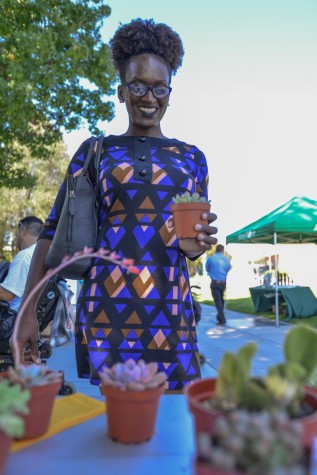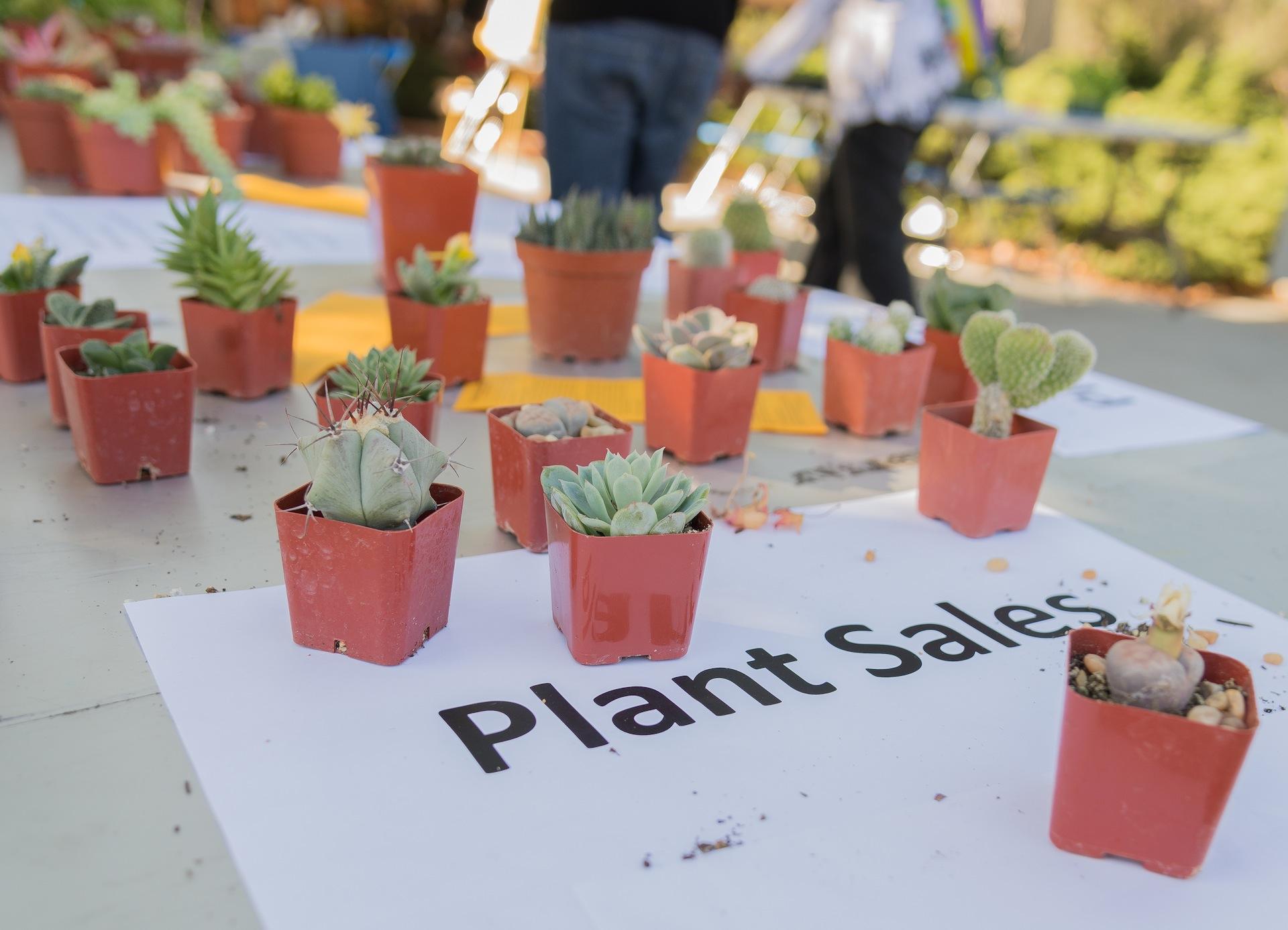More than your average green thumb gang
April 26, 2015
When his grandmother told him if he put something in the ground and nourished it, it would come back, he decided to test her theory, so he started growing his own potatoes at just 4 years old.
He soon found that what she told him was true.
A tiny potato plant had began to push itself out of the soil and eventually blossomed into a leafy bush with new potatoes growing underneath.
He’s been hooked ever since.
“My grandma told me to go into that garden and grow something,” Reginald Fagan, 56, president of the El Camino Horticulture and Environmental Club, said. “Relating to the land gave me an opportunity to calm my nerves. I realized that I can put something in the ground and care for it, and it will come back.”
The club has a knack for garnering interest and encouraging participation from the EC community and beyond. The club strongly urges community involvement, as they are extremely hands on in their approach. From the grounds maintenance personnel to the Special Resources Center – even the music department – there is always a way for people to get involved in environmental stewardship, Fagan said.
“Everyone has some gardening experience somewhere in their life,” Fagan said. “We want to pull it out. Everyone has a story.”
Fagan explained that people often had not fully articulated their interest in gardening and the environment until the club had forged a relationship with them.

“We want to reach out into the community and make connections,” Fagan said. “We’re a diverse community of different cultural backgrounds. A young lady once told us, ‘I want to be a farmer like my mother and auntie, even though I am going to school to become a nurse.’”
Regarding his work as a kind of ministry, Fagan shared his experiences on how he has come to care for the environment and become a steward of nature. His hope is that many others may uncover their inherent relationship to nature and discover new ways to reconnect with the environment.
“When we were young we used to go to the park. We didn’t have to spend a lot of money. It was our true nature just to have fun. Life was simple. Relationships were stronger and bonds were stronger,” he said. “Technology, a lot of things we have now, has stripped us from these skills.”
Members of the club stress that though it may seem contrary to many of the beliefs that are shared today, people are not separate from nature.
Anthony Rhone, 20, English major and member of the club, said that certain aspects of society can wear people down as they become overwhelmed with ideas. He stressed that it can be difficult for people to interact with others when they do not already know how. He also said that, in the same way, it can be difficult for people to handle nature if they do not already know how.
Samson Lozano, 22, Earth and biological sciences major and member of the club, said that when people are not taught that the world is dynamic, from the smallest ant to the largest whale, they are not going to see it and they are not going to care. The result, he said, is ignorance.
“Ultimately, people do get interested. It is our true investment. But civilization can distract us from our true nature,” Fagan said.
Many members arrived early on a Saturday morning last fall to get the soil ready for the new drought-tolerant garden located next to the Student Activities Center. The installment of a drought garden was accompanied by a drought workshop, an event that took place the following Monday at the same location.
The workshop featured exhibitors who showcased water conservation products while Climate Change advocates and representatives from Water Resource Management educated the EC community and guests on water conservation. Outside, students and faculty visited product booths and bought drought tolerant plants.
“I like how we are mostly hands-on in dealing with situations like when we dug up all the grass,” Julian Valle, 26, psychology major and club member, said. “It’s to help with the environment, not just us. El Camino is part of California and California is in a drought.”
Fagan shared that one way he hopes to create a bridge with the larger community is by creating an event in which kids, particularly middle school students, could participate. He envisions the possibility of independent artists reaching out to schools for participation in a drought education workshop.
“The kids could draw their answers to questions such as ‘What do you think the drought was all about?’ while an art coordinator could pick the top 10 pictures and award prizes. All of the kids’ drawings could be posted where EC students would see them. It would be a motivator,” he said.
Members also are knowledgeable about the horticultural and botanical background of El Camino and its surrounding communities. Gardena was a berry city, for example.
“This area had a heritage and it makes sense that the college ties into that heritage,” Fagan said. “We’ll do what we can to keep it going.”
Many members of the club have a scholarly and philosophical approach to their work. Their intellectual and spiritual perspective serve to guide their work and vision.
Everyone has some gardening experience somewhere in their life. We want to pull it out. Everyone has a story.
— Reginald Fagan
Rhone explained that some people view nature as a tool. He said that while nature is useful in its own right, it is impossible for nature to just be a tool.
“People have a mindset,” Rhone said. “But nature is a self-functioning system.”
Fagan stressed that the true nature of humanity is to be attuned to our surroundings, that human beings are caretakers that are to work alongside with Mother Nature. He said that people have had a mistaken tendency to believe that they are at the center of nature. Since the very beginning, he explained, we had a tendency to try to conquer nature instead of working with it.
“If we harm the balance and natural rhythm, we are going to be in disharmony. But if we try to get in tune with that rhythm, life will get a little easier for us,” Fagan said.
Fagan has noticed that when people’s habits become shaped by modern conveniences, they begin to lose touch with an inherent sense of their connection to nature.
“This is something I see as special. I saw a tree in my backyard and thought, ‘That’s a living thing.’ It was blowing in the wind and it had some sort of awe to it,” Fagan said. “How do you get people to step back and say ‘God gave us something special and we’re stewards.’ If we take care of it, this could be a really nice place.”

